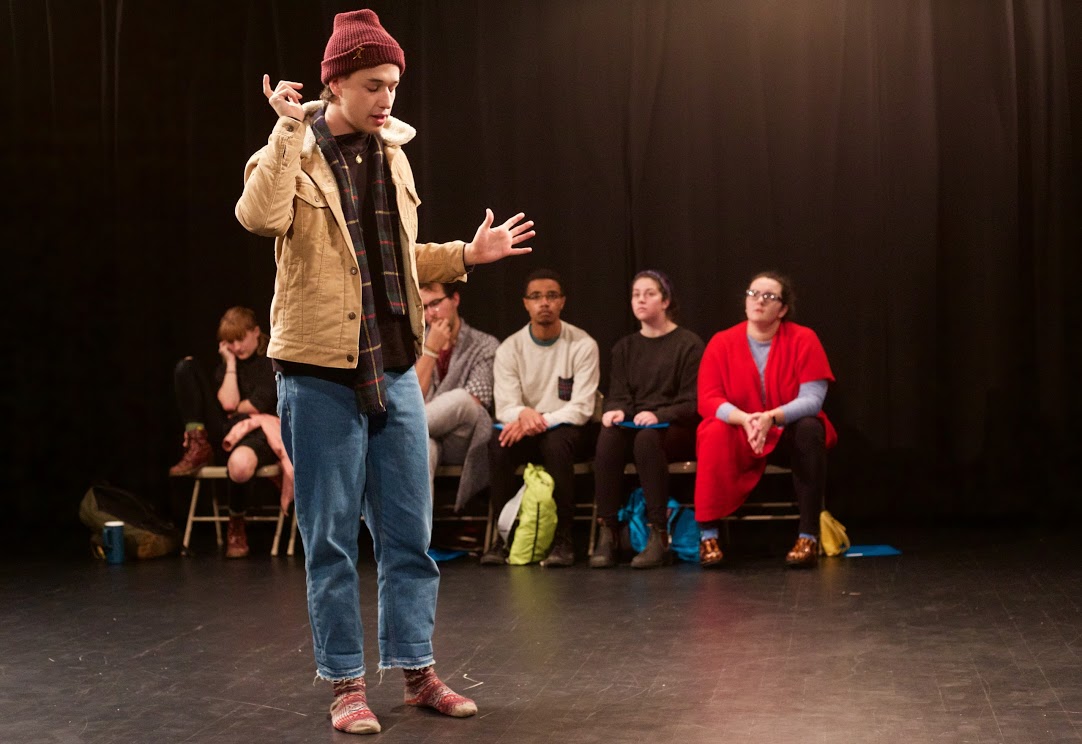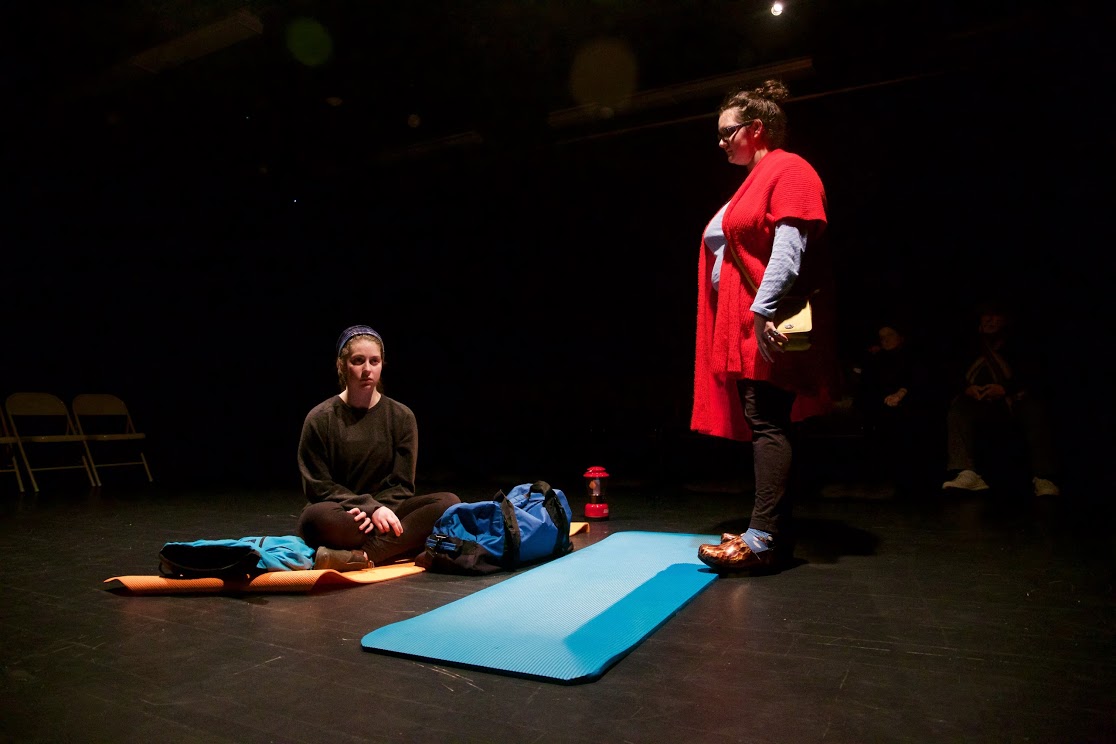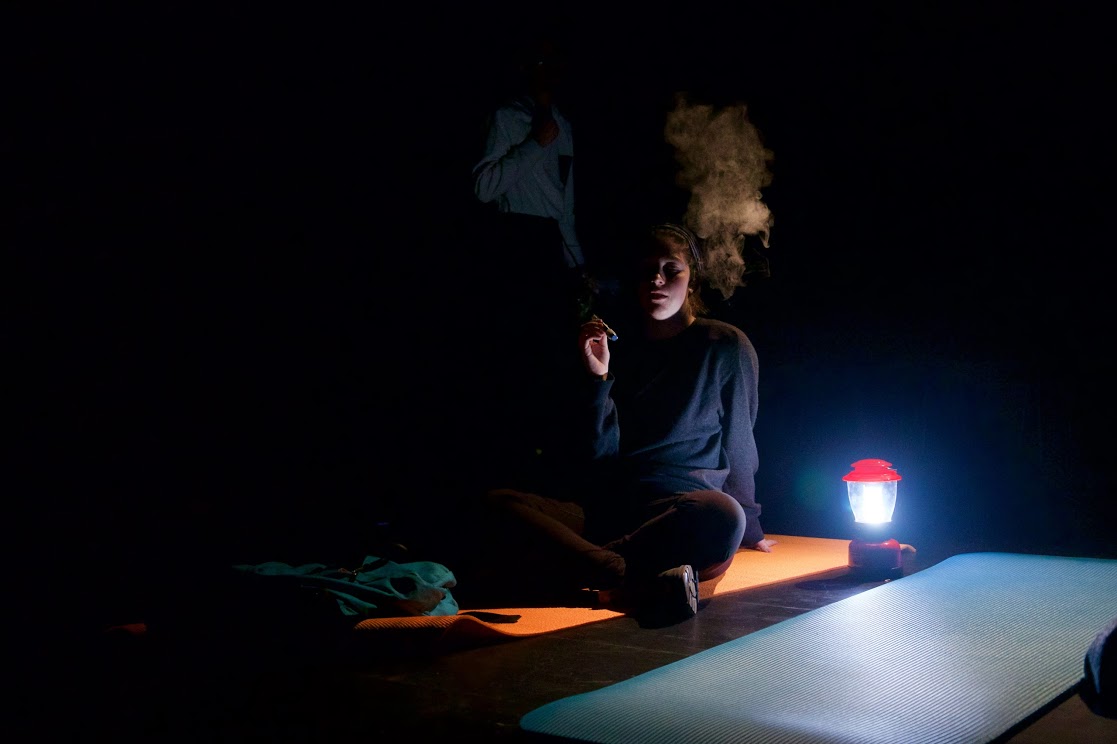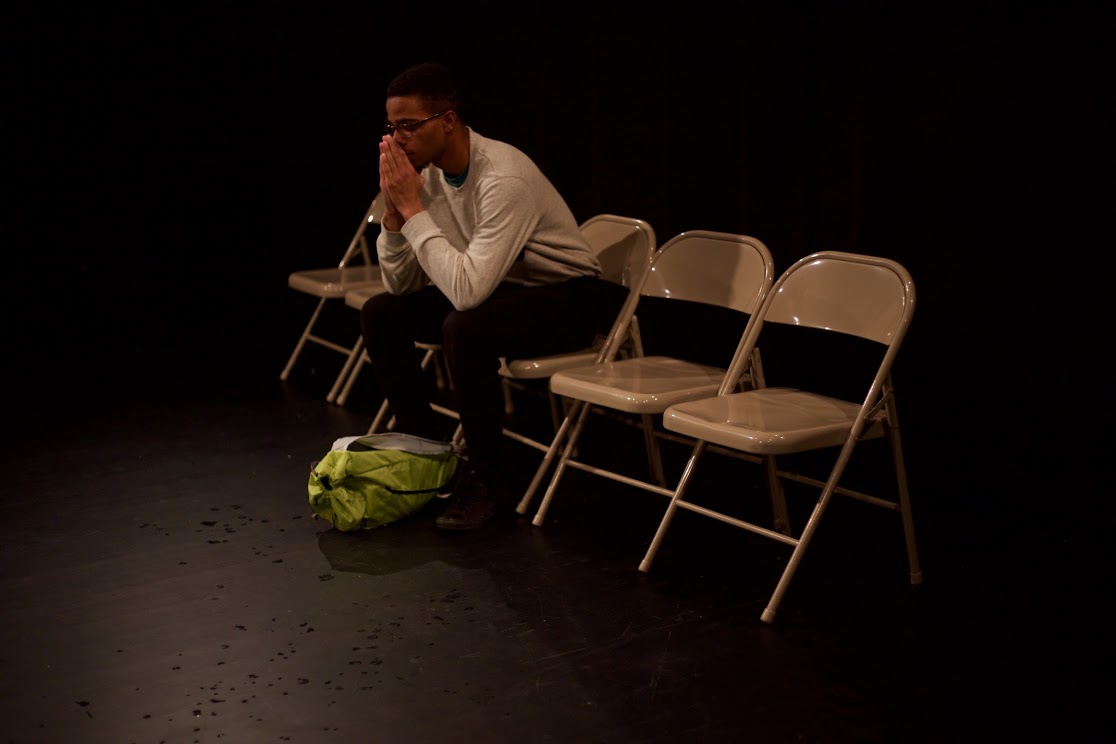By Natalie Lifson

Liel Dolev ’20 and cast. Photo: Samantha Fleishman ’20.
Small Mouth Sounds, a play written by Bess Wohl and directed by Sam Grant ’18, examines the depth of human emotion that can be reached if we are only willing to pay attention to it. Small Mouth Sounds explores the relationships of six damaged individuals between themselves, each other, and nature. The six protagonists, played by Liel Dolev ’20, Dante Haughton ’19, Bridget Kerr ’21, Finley Martin ’19, Nick Ranieri ’20, and Hanna Yurfest ’21; are traumatized individuals of various ages from various walks of life who sign up for a retreat into the wilderness in order to escape their quotidian lives and improve their outlook. The character of, “Teacher,” a disembodied voice played by Kyle Ferris ’18, seeks to teach them about themselves through long, drawn-out monologues, that ironically enough, center around the importance of silence. Throughout the trip, the students are not to make a peep; rather, they must communicate through body language and “small mouth sounds.”
This particular production of Small Mouth Sounds was beautifully done. The actors mastered the art of movement and emotional expression. It was clear that a lack of spoken text contributed to a greater focus on and subsequent understanding of character. The obvious deep understanding of their characters mirrored the intention of Small Mouth Sounds; if you take away words, all that remains as a tool for communication is body language.

Hannah Yurfest ’21 and Bridget Kerr ’21. Photo: Samantha Fleishman ’20.
Although the piece had very little spoken text, sound greatly contributed to establishing the world of the play. The amplified, disembodied voice of Teacher placed us in a stark, modern classroom. The croaks of frogs, the peeps of peepers, and the chirps of crickets moved us to the forest at night, whereas the singing of birds indicated a shift to day.
Additionally, the scenic and lighting design was particularly noteworthy for its creativity and simplicity. Six chairs were set up at the back of the stage. During moments that centered around the teacher’s monologues, this is where the cast sat. However, the majority of scenes took place in and around tents in the forest. Each tent was cleverly represented by a yoga mat, its boundaries delineated by light. Whenever a scene took place in a tent, a spotlight would go up on that particular yoga mat as the actor flipped on their electric lantern, artfully creating the illusion of an enclosed, private space.

Hannah Yurfest ’21. Photo: Samantha Fleishman.
At the start of the play, Teacher begins by sharing a story with the students in which a frog dies rather than returning to the well after seeing the ocean. While initially content with living in the well, as soon as the frog understands how much more there is out there, he can never experience the well the same way again. “When we meet ourself and we see that we are not at all the way we thought,” Teacher articulates the moral of the frog story, “We can either freeze in fear. We can die, like the well frog. Or we can run away, back to our comfort zone, take drugs, have sex, eat food, watch television, drink alcohol. Or we can stay.”
While the students conceptually understand, it is not until the last line of the play that they emotionally understand. The retreat has finished and our protagonists are in the process of leaving. Haughton ’19 slowly sounds out as the meaning of Teacher’s metaphor, which all at once, becomes abundantly clear. “Ocean, ocean,” he repeats to himself with renewed understanding. After they have experienced the true depth of human connection and emotion that the silence of the retreat has brought about in themselves, it will be incredibly difficult for them to return to their shallow, fast-paced lives. While they may continue to long for the silence and nature that they experienced on the retreat, they are able to leave the experience with a renewed understanding of suffering and healing.

Dante Haughton ’19. Photo: Samantha Fleishman.
GALLERY
PRODUCTION CREDITS
Director: Sam Grant ’18
Stage Manager/Lighting Designer: Eve Gertzman ’20
Cast: Kyle Ferris ’18, Liel Dolev ’20, Dante Haughton ’19, Bridget Kerr ’21, Finley Martin ’19, Nick Ranieri ’20, and Hanna Yurfest ’21
***
Additional content written by Rachel Karp & Ziggy Schulting, STLN co-Editors-in-Chief
Natalie Lifson is a First Year and staff writer for The Skidmore Theater Living Newsletter.











